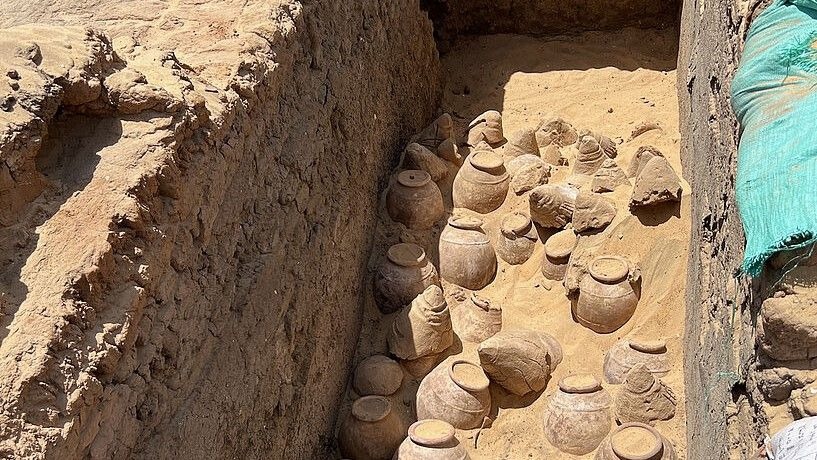
Historians have long suspected that Queen Meret-Neith was the most powerful woman in Egypt around 3,000 BC. Now, archeologists have found evidence that indicates she may have been ancient Egypt's first female ruler. Before this, that honor belonged to Queen Hatshepsut (1507 BC - 1458 BC).
Queen Meret-Neith was the wife of King Djet and the mother of their heir, King Den. Her tomb complex in Abydos, Egypt, was first discovered in 1900 alongside the graves of 41 servants and courtiers. However, it is only recently that a team led by Christiana Köhler from the University of Vienna began excavating the monarch's burial chamber.

To their surprise, the archeologists found many grave goods usually reserved for kings. Among them were hundreds of 5,000-year-old wine jars. Many were sealed and contained remains of wine and grape seeds. Additionally, inscriptions found inside the chamber indicated that the queen was responsible for central government offices such as the Treasury.
Previously, Meret-Neith's name had been found on a list of Egypt's ancient kings in her son's tomb. It was followed by the title "king's mother." This, together with the new evidence, led Köhler's team to conclude that Meret-Neith may have been Egypt's first female ruler. The team speculates that she took over for a few years after the death of her husband since her son was too young to rule.

But not everyone agrees with the new theory, revealed on October 9, 2023. Some experts argue that women were not accepted as leaders in ancient Egypt, especially this early on. "Wives and daughters were not typically considered in terms of royal successions," Dr. Margaret Maitland, a curator at the National Museums Scotland, told Live Science. However, she does admit that the new discoveries indicate the ancient queen had "an unusually high level of authority for a royal woman."
Köhler is not surprised by the skepticism. "There is indeed a lot of debate going on among Egyptologists as the evidence is not entirely conclusive," she says. "I'm almost sure that once we have completed the excavation of this huge complex, we will know more."
Even if she had the authority of one, Meret-Neith would not have been called a "pharaoh." The gender-neutral title, which translates to "great house," is believed to have been adopted much later by Queen Hatshepsut.
Resources: LiveScience.com, Businessinsider.com
